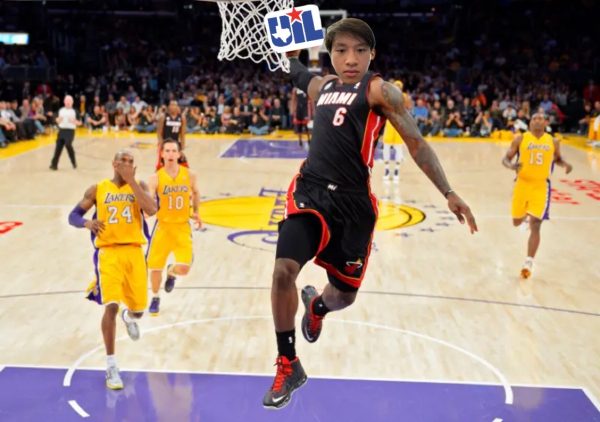Senioritis: Seniors’ Journey

Senior students that experience Senioritis don’t know the possible outcomes that can affect them in the future. Clueless.
Senior year of high school is a memorable experience for many students. Students start feeling less motivated when universities start sending out decision letters, which they see as a reward to the future that they have gotten accepted to their dream school. Being accepted into college is an accomplishment to be proud of. An acceptance, however, is never final. Just as readily as it may be given, it can also be taken away. All senior students are reminded that grades are important, right up until the last day of class.
Senioritis is a shift in high school pupils’ behavior. The transition usually occurs in the second semester of a person’s senior year and is characterized by a lack of motivation. Academic achievement has been linked to senioritis in the past. After the first three years, students frequently feel exhausted and give up. But senioritis can have disastrous results. Students who allow their grades to deteriorate too much run the risk of having their acceptances revoked. According to the National Association of College Admissions Counseling, over 21% of universities nationally yearly deny students’ admission.
Usually underclassmen hear about senioritis from upperclassmen, and many believe it is not real. Many students consider senioritis as a myth but in this case it is not. Although this can happen to many, some students might not experience this. For those students who don’t take senioritis seriously, this can be a huge problem for many students in their senior year.
CVHS senior student Sidney Ngyuen discusses her first time hearing about senioritis by former CVHS students and how she is currently going through that process as a senior.
“My brother was a senior at Carnegie last year. So he was like, not on top of his thing. He did not care after college applications, he was just breezing through it. He didn’t really have time at the end of the day because he always tried to get at least six hours of sleep and because that’s important for his health. I asked people about senioritis and they told me what it meant and now as a senior, I definitely do feel it because I’ve always heard the term but I never knew how that would feel but now as a senior, I definitely do feel it,” said Ngyuen.
Right after the second semester of high school started, many CVHS seniors are experiencing senioritis. Nguyen talks about her transition from fall semester to spring semester and how it has drastically changed her view on school work.
“So the first semester I remember, in the beginning, I was like, OK, I’m going to be on top of my game, I’m going to study or I’m going to read. But obviously as the semester progressed, I was more busy with work because finals were approaching during the first semester and I actually like to put my grades on top,” Ngyuen said.
Although she tried keeping up with her work during the first semester, everything went downhill after starting her spring semester.
“It affected me so much it’s at the point where I don’t even do homework most nights like I would just do it as soon as I get to school.” Ngyuen said.
CVHS senior Madeline Ward also seems to experience senioritis this spring semester.
“It’s really impacting me. My work ethic is down the drain. My mentality toward anything, educational wise, even if I do enjoy it, it’s down the drain. I have to basically guilt trip myself to do assignments because I remember how dedicated…how motivated I was last year to get all my assignments done and that’s what forces me to do my assignments now,” Ward said.
Seniors are currently experiencing these changes, students tend to not give up and keep pushing through the year. In fact students are mentally preparing themselves for possible outcomes that can affect them in the future. Ward discusses the possible effects that can impact her in the future if she doesn’t plan to keep with her work during the spring semester.
“I think it will severely affect me in the future, especially my freshman year of college. Because, you know, that’s when you’re experiencing all this freedom for once, after just basically having a year where you just didn’t care and it’s like, you don’t care plus freedom. Oh my god. That’s a terrible combination. And I think I’m really going to struggle in the future,” said Ward.
If upcoming seniors don’t mentally prepare themselves about senioritis, they will eventually go through the same thing. As Ward mentions, this can possibly be one of the worst things about becoming a senior student.
“Worst thing about being a senior is honestly senioritis because you see everyone around you like freshmen, sophomores and juniors, who are putting in effort and there they are trying to succeed and they’re trying to get the best grades they can so that they can get the highest ranking. And you see everyone putting in a lot of effort and it’s like, well, I’ve already put in all this hard work and now I’m just like, I don’t care anymore. And it’s kind of a bit upsetting because it’s like, okay, well as a senior, I should be the one setting the example and it’s like no, I’m not really setting an example. What I’m doing now is just saying I don’t care anymore about school, which is bad for the underclassmen, as upperclassmen,” Ward said.
Students should start planning out different ways on how to avoid senioritis for better performance in their senior year. In addition, they should also consider what parents think about their performance in school. Ward believes what consequences she could face if senioritis drags her and her grades down.
“I think about what my mom would tell me if she sees that my grades are dropping because we go to such a prestigious school, where grades really matter and if my mom sees I get to like C or a B, she’ll just get really upset with me and that’s what I think about whenever I’m doing my assignments, and that’s what forces me to want to maintain my assignments and maintain what I’m currently doing,” Ward said.
Both Ward and Nguyen encourage upcoming seniors to always keep on pushing and stay on track because senioritis is real.
“I mean, everyone experiences senioritis in their own ways…all you can do is just tell them about it. And even if they know about it, they’re still going to eventually go through it. So my only advice is to hold back on senioritis until the second semester. Don’t let it affect your first semester. So at least you won’t really be affected by it…when you look at your grades,” Ward said.
“It’s important to have a balance so don’t crowd your schedule with so many AP’s that you can’t keep up. But at the same time, don’t limit yourself so much to the point where you’re not doing anything because you should use classes that will actually help you for your career. And then just knock it out during your high school as a senior,” Ngyuen said.
Your donation will support the student journalists of Carnegie Vanguard High School. Your contribution will allow us to cover our annual website hosting costs and fund field trips, competition fees, and equipment. We appreciate your support!

Ashley is a senior at Carnegie. Even though she is busy with school, she still finds time to do activities outside of school like playing soccer. Ashley...








